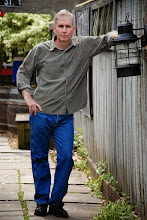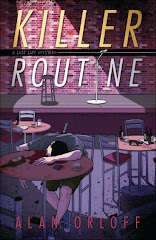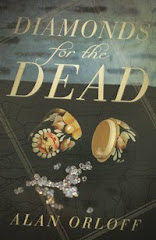There are many routes to Publication City. Here's one:*
 At the beginning of your journey, the road appears daunting, almost impassable. So many other travelers, so many obstacles, so many turns and switchbacks and dark tunnels to negotiate.
At the beginning of your journey, the road appears daunting, almost impassable. So many other travelers, so many obstacles, so many turns and switchbacks and dark tunnels to negotiate.
You embark and work hard, honing your craft, pouring your story out. Word by word, sentence by sentence, chapter by chapter, it takes shape. S-l-o-w-l-y. You might take a writing class or workshop; you might join a critique group to help you from getting lost. Whatever works for you.
Be sure to ignore all the stalled and abandoned vehicles on the side of the road. Keep your eyes on the destination ahead.
You press on, undeterred.
Finally, you approach Milepost One - a finished first draft. Traffic is still heavy here, but a good number of the fast starters never made it to this point, for whatever reason. You celebrate this achievement, because frankly, you weren't sure you were going to make it this far, either.
Now you enter the revision leg of the trip, and the road becomes winding and treacherous. Signage is confusing and often contradictory. Which direction should you go? What turns should you make to stay on the right track? Expect to run into dead ends along the way and encounter scores of other writers, all going in various directions, some fast, some slow, many in endless circles. You check in frequently with your critique group to keep from wandering too far afield.
After many weeks (or months or years) traveling Revision Boulevard, you've completed a finished, polished manuscript. Congratulations on reaching Milepost Two! (Go ahead, celebrate again. In fact, take every chance you can to celebrate.)
The trek continues. Up ahead, you see a gigantic bottleneck--people trying to merge onto the Snare-an-Agent exit. (You can take a detour here to avoid the masses, but be warned: the alternate routes are bumpy and the bridges are often washed out.) You write a query. Then rewrite it. After thirty or so rewrites, you figure it's ready. As you query agents (widely), you inhale exhaust fumes from thousands of others stuck in the same gridlock. Unfortunately, it could take a long time to get your wheels moving again. Some never do.
But your persistence pays off and you sign with an agent at Milepost Three (Yahoo!). She buckles into your passenger seat and directs you into the HOV-Agent lane of Submittal Highway. There aren't as many vehicles, but for some reason, no one is moving very fast.
With a lot of patience and persistence, you are fortunate to reach the all-important Milestone Four: SALE! 
You breathe a big sigh of relief and celebrate.
Next, you abandon your car for a seat on your publisher's train. (Hey, this is my convoluted extended analogy, and if I want to mix cars and trains, I will. Now pipe down, unless you want me to turn this thing around and head back home!) Your editor-conductor tells you to sit back and enjoy the ride--he knows the way and he'll get you to your destination safely. No longer do you have to fret about which way to go. (Save your energy, there are plenty of other things to worry about!)
So you sit back and watch the milestones go by: an editorial letter, a shiny cover, the listing on Amazon. Inclusion in your publisher's catalog. Your bookmarks. Galleys, ARCs, reviews, interviews--the mileposts blur. But it's all good. And since you're no longer driving, you can concentrate on mapping a route to your next destination: Promotionville. Of course, in your spare time, you might want to pull out the laptop and get to work on your next manuscript.
After all, you want to take this crazy trip again, don't you?**
Footnotes
*For your enjoyment (and as a change of pace), this post is written in second-person.
**All this talk of mileposts reminds me that today is my birthday.
(This post “simul-posted” on InkSpot.)





















































